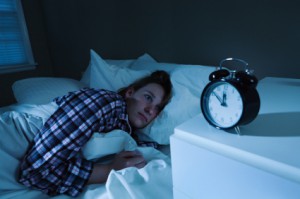“Sleep is for the weak!” That was what we said in college. For some, that meant holding down a job while taking 20 credits of advanced physics and engineering was more important. Others felt sleep cut the party short.

Back then, I too thought five hours of sleep was perfectly adequate. But as I got older, I started to realize that amount left me irritable and groggy. Coffee just made me jittery and cranky.
And still, most nights, I’d rather stay up late doing something — work or fun.
My colleagues and friends have the same experience. We think almost everything else is more important than sleep — even though the evidence says otherwise.
Why Do We Need Sleep?
Although doctors don’t completely understand what happens during sleep, they do know not getting enough of it can contribute to:
- High blood pressure
- Heart disease or irregular heart rhythms
- Stroke
- Obesity or difficulty losing weight
- Depression
Sleep is restorative, says Gina Engel, MD. It resets bodily functions.
Sleep also helps with brain development in kids and teens, including the hypothalamus, which regulates appetite and energy expenditure. So kids who don’t get enough sleep are especially at risk for obesity, Engel says.
Even slacking on sleep for just one or two nights hurts your short-term memory and concentration, which puts you at greater risk for injuries, including car accidents.
Interestingly, too much sleep also puts you at risk for these problems, Engel says.
So, How Much Sleep Do You Need?
Adults need seven to nine hours a night, Engel says. The exact amount depends on your individual body. Teens and kids need more:
- 8.5-9.5 hours for teens
- 10-12 hours for infants and kids
How Much Sleep Are We Getting?
We did an informal poll on our Health System Facebook page asking people how many hours of sleep they get per night. The results:
- 14 respondents (31 percent) said six hours
- 11 said eight
- 10 said five
Only 17 people (38 percent of respondents) reported sleeping the seven to nine hours Engel recommends. 29 percent get five or fewer hours per night.
Contrary to what we said in college, sleep isn’t just for the weak. Some people claim they can function well on less sleep, but “it eventually does catch up with you,” Engel says.
Likewise, trying to catch up on missed sleep over the weekend might work occasionally, but over a period of years, you won’t be able to counter the health consequences.
Sleep Tips: How to Sleep Well (and More)
For teens, it’s important to help prioritize sleep and enforce a bedtime. “We want to help kids with time management, so they can get their work done during the day,” Engel says. Knowing the health consequences of too little sleep, she says, “gives you the information you need as a parent to say, ‘No, this really is important.’”
What if you’re just not sleeping well or can’t get to sleep? Most people have occasional insomnia. “I tell people, ‘Do all the things you would do for your baby,’” Engel says. Her recommendations:
- Go to bed at the same time every night.
- Do something relaxing before bed, like taking a warm bath or reading a book.
- Keep TVs, iPads and other electronic devices out of the bedroom.
- Avoid eating or drinking alcohol before bed. Alcohol may help you get to sleep, but you won’t sleep well.
- Stay away from caffeine after mid-afternoon.
If these tips don’t do the trick, Engel tells her patients to keep a sleep journal where they record concerns that are keeping them from getting to sleep, good thoughts and sleep and eating habits. Sleep medication is sometimes an option. And if none of that works, she investigates sleep disorders such as apnea.
Sleep Issues? Anna DeLong, LCSW, an employee assistance consultant with UVA’s Faculty and Employee Assistance Program, created a sleep assessment.
Take the assessment (PDF) and discuss it with your primary care doctor or schedule an appointment with one of UVA’s sleep specialists.
this was wonderful to read. i printed everything because i want to try to get better. Thank you. Josh